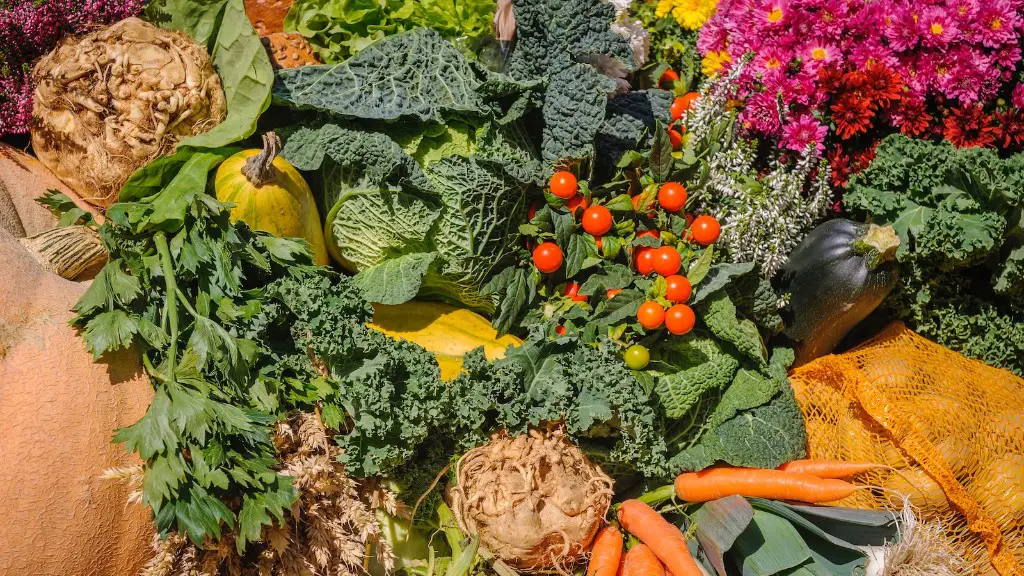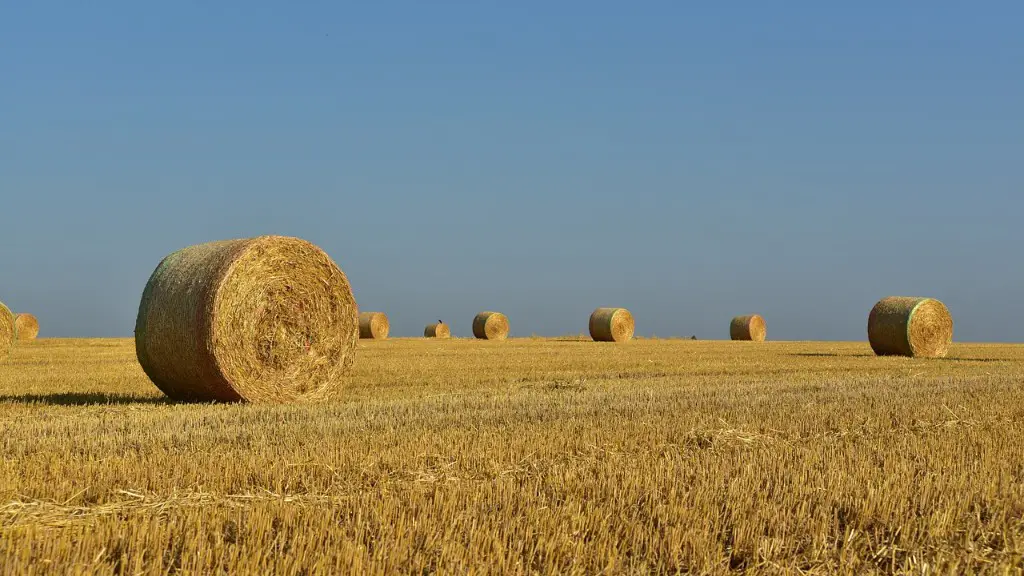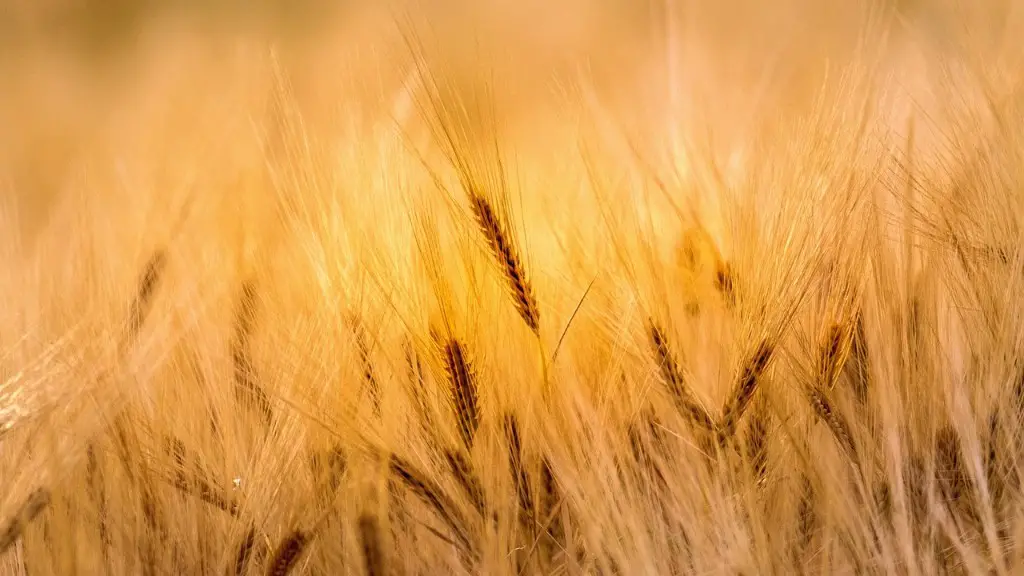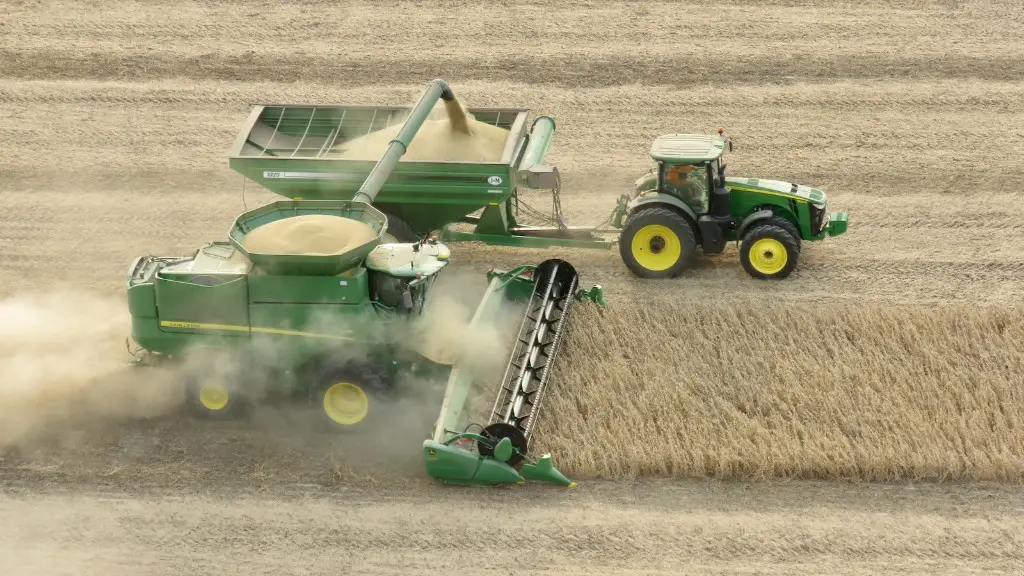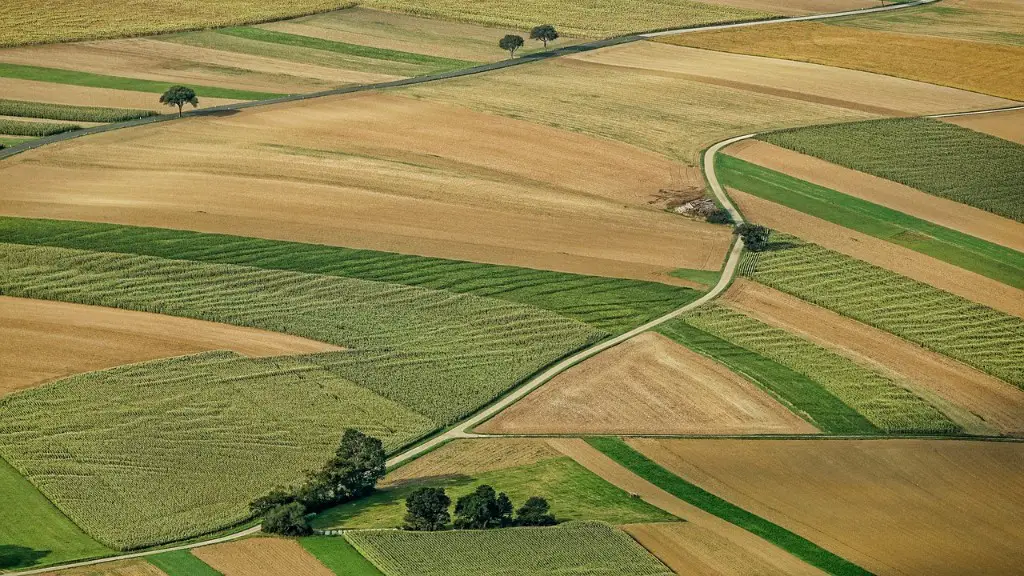Why is Agriculture Unsustainable?
Agriculture is an essential part of modern society, allowing us to produce food. However, the current way in which food is produced is rapidly becoming unsustainable. This is primarily a result of inefficient land use, overexploitation of soil, and water shortages. In this article, we’ll examine why agriculture is becoming unsustainably and what must be done in order to protect our future food resources.
The increasing prevalence of industrial agriculture has caused massive amounts of soil loss and land degradation. Industrial farming techniques rely heavily on monocultures: growing the same crop in one area continuously. This quickly depletes the soil of essential minerals and nutrients, preventing it from staying viable for agriculture. To make things worse, this process is often accelerated by the widespread use of irrigation. Irrigation can be helpful in out-of-season production and dry climates, but it can also dramatically reduce soil fertility when overdone.
Another key factor in modern agricultural sustainability is water shortages. The world’s freshwater supply is limited and becoming increasingly so, as climate change creates a more variable and drier climate. As a result, water needed for crop production is becoming scarcer and more expensive. This limits farmers’ ability to produce those crops needed for human consumption.
In addition, intensive farming methods have caused an increase in the use of agricultural chemicals such as pesticides and fertilizers. These chemicals can reach rivers and streams and damage aquatic ecosystems, further degrading the environment. Furthermore, when used heavily, they can contaminate groundwater and create health risks for humans as well.
Lastly, modern agriculture has resulted in the depletion of natural resources, including land, air, and water. As we continue to expand our agricultural footprint, we deplete wildlife habitats, damage ecosystems, and reduce biodiversity. These changes can have long-term implications on our ability to sustain our agricultural production.
Monocultures
Monocultures, or the growing of only one crop in one area consistently, are a major contributor to the unsustainability of agriculture. Monocultural farming allows farmers to grow one harvest repeatedly on the same land over time. This system is attractive because it permits higher yields; however, it can quickly deplete the soil of essential minerals and nutrients, leaving it unable to sustain successive harvests.
Additionally, monoculture farming requires large amounts of fertilizer and pesticides in order to achieve the same level of yield. These chemicals can leach into nearby watersheds, contaminating fish and other aquatic species. They can also end up in our drinking water, leading to health issues for humans who consume them.
Lastly, monoculture farming can cause a decrease in soil fertility and yield potential. This can result in lower-quality, nutrient-poor crops that contain fewer of the essential vitamins and minerals required for a healthy diet.
In order to combat the effects of monoculture farming, it is important to implement crop rotations or diversified farming systems. These methods introduce multiple elements into the agricultural system,keeping soil nutrients levels up and preventing soil erosion. This also gives farmers access to a wider variety of crops, reducing the need for inputs and improving food safety.
It is also important to invest in soil conservation and management techniques. Cover crops, mulching, and crop rotations can help improve and sustain soil fertility. Using compost instead of synthetic fertilizers can replenish essential minerals in the soil and reduce the chance of water contamination.
Water Shortages
Water is essential for crop production. As global climate change reduces the amount of available water, food production is threatened. This is a great cause for concern,as water scarcity can reduce crop yields and leave communities without adequate resources.
Water is also needed to irrigate crops, and it is becoming increasingly expensive to maintain the water resources necessary. As a result, farmers are struggling to provide the resources needed for healthy and sustainable crop production.
In order to combat water shortages, governments and communities must take steps to conserve and manage their water sources. This includes increasing water efficiency, restoring watersheds, and investing in rainwater harvesting systems. Additionally, communities can embrace aquaponics and hydroponics, two systems that rely on controlled irrigation and can reduce the need for freshwater.
It is also important to reduce water pollution, which can make water sources unsafe for human consumption. Implementing water filtration systems, cleaning up contaminated waterways, and investing in waste management solutions can all help improve water quality.
Finally, communities must ensure that their water sources are being used wisely. Irrigation and water allocations plans can be developed to ensure that water is utilized in a safe and efficient manner.
Agricultural Chemicals
Agricultural chemicals, such as fertilizers and pesticides, are commonly used in modern farming practices. Although these chemicals are necessary to enhance crop yields and protect against pests, they can have a damaging effect on the environment.
When used excessively, these chemicals can leach into nearby watersheds, polluting water and killing fish and other aquatic species. They can also end up in our drinking water, leading to health issues for humans who consume them. What’s more, chemical runoff can cause an overabundance of nutrients in waterways, causing algal blooms and further damaging the environment.
In order to combat this issue, it is important to reduce the use of agricultural chemicals. Farmers can reduce their reliance on chemicals by stepping away from chemical-only farming systems and embracing more natural methods. These include planting native and drought-resistant crops,covering crops with mulch, and using natural pest control solutions.
It is also important to maintain clean waterways, as this can reduce the amount of chemical runoff. Communities can do this by regularly testing water resources, monitoring agricultural chemicals, and implementing water protection laws.
By taking these steps, we can limit the use of agricultural chemicals and protect our environment in the long run.
Natural Resource Depletion
As agriculture continues to expand, natural resources such as land, air, and water are being depleted. This can lead to ecosystem degradation, which can cause a decrease in biodiversity, reduce natural resources, and limit our ability to produce food in the future.
In order to prevent natural resource depletion, it is important to limit the expansion of agriculture. Communities can do this by investing in land conservation projects and creating laws to ensure that land quality is preserved. Additionally, it is important to establish wildlife sanctuaries in areas that are important for biodiversity and food production.
It is also important to reduce the use of natural resources in agricultural production. For example, farmers can reduce their energy consumption by investing in solar energy or by utilizing renewable sources such as wind or biofuel. Additionally, farmers can reduce their water consumption by implementing water-saving techniques such as drip irrigation.
Lastly, communities should invest in sustainable farming practices. This involves transitioning to organic farming methods, investing in soil conservation, and avoiding the use of synthetic fertilizers. This can help reduce the environmental impact of agricultural production and support agricultural sustainability in the long term.
Conclusion
The current way of producing food is unsustainable and must be changed if we are to protect our future food resources. Agriculture is becoming increasingly unsustainable due to inefficient land use, overexploitation of soil, water shortages, and the increase in agricultural chemicals. To combat this issue, governments, communities, and farmers must take steps to reduce their agricultural footprint and invest in sustainable farming practices. By doing so,we can ensure our agricultural production will be sustainable in the long run.
